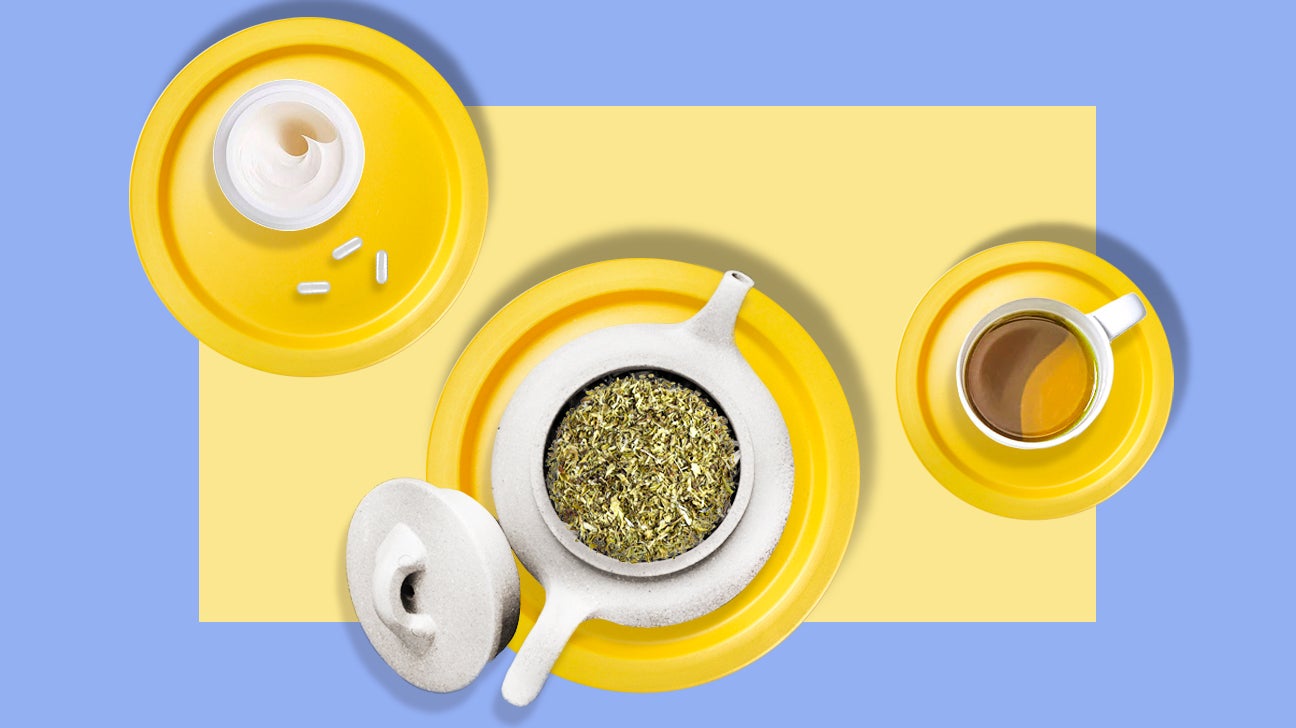Icelandic moss sounds like a Brooklyn-based clothing brand, but it’s actually a plant that grows in (you guessed it!) Iceland 🇮🇸. It has a long history of use in folklore medicine and might have some real-life health perks.
WTF is Icelandic moss?
Icelandic moss (Cetraria islandica) isn’t really moss. It’s actually a type of lichen! That’s a composite organism made from a blend of fungi and algae.
Icelandic moss is also known as:
- centraria
- Iceland lichen
- lichen d’Islande
- eryngo-leaved liverwort

What’s Icelandic moss used for?
Icelandic moss has been used in European folk medicine for hundreds of years.
Peeps use it as a natural remedy for:
- fever
- bronchitis
- dry cough
- sore throat
- skin wounds
- common cold
- urinary tract conditions
- respiratory infections
- loss of appetite, indigestion, or nausea
But TBH, we need a lot more research to prove these perks are legit.
Here’s why it might work
Icelandic moss contains compounds (like lichenin and isolichenan) that have antioxidant, antimicrobial, and anti-inflammatory properties. That means Icelandic moss might pump up the volume on your immune system. In theory, this could help you crush colds and reduce your risk of future illnesses.
BTW, it also boasts complex polysaccharides. This type of carb might help alleviate mucus buildup, coughing, congestion, and sore throats.
Reminder: Icelandic moss benefits are still more folklore than fact. We still need more research to prove these benefits are real.
Side effects
Icelandic moss has only been approved as a flavoring agent in alcoholic bevvies by the FDA. But it’s prob safe to use in small doses as an herbal remedy.
Icelandic moss comes in:
Stick to the good stuff
Herbal products and supplements aren’t strictly regulated by the FDA. Try to find products that have been third-party tested for quality and purity. You should also opt for brands that have a stamp of approval from the USDA.
Who shouldn’t use Icelandic moss?
Lichens are known to absorb pollutants. So, untreated Icelandic moss could contain heavy metals like lead. This might make it dangerous to take if your eggo is preggo or if you’re nursing.
Icelandic moss has no known drug interactions. But it does contain compounds that may decrease your body’s ability to absorb medications.
Dosage deets
There’s no exact set dose for Icelandic moss. The right amount for you can depend on your age, weight, and overall health. But you should still try to stick to small doses since large quantities can contain high levels of heavy metals.
PSA: Talk with your doc before taking Icelandic moss or any type of herbal supplement. They’ll let you know the right amount to take (or if you should take it at all).
Alternatives to Icelandic moss
Icelandic moss not your vibe? Here are some other supplements, plants, and herbs that might have similar benefits.
| Respiratory conditions | Skin wounds | Sore throat | Urinary tract health |
| oregano | aloe vera | garlic | uva-ursi |
| rosemary | green tea | chamomile | cranberries |
| mullein leaf | turmeric (aka curcumin) | licorice root | parsley leaf tea |
tl;dr
Icelandic moss is a type of lichen that grows in Iceland. It’s been used as a natural remedy in folklore medicine for centuries. Peeps think it can help calm respiratory conditions, colds, and sore throats. It has also been used as a way to treat skin wounds and urinary tract conditions.
While we still need more research to prove it actually works, it might be worth a shot. Just be sure you talk with your doctor before you use it. You should also avoid it if you’re pregnant or nursing.


0 Commentaires